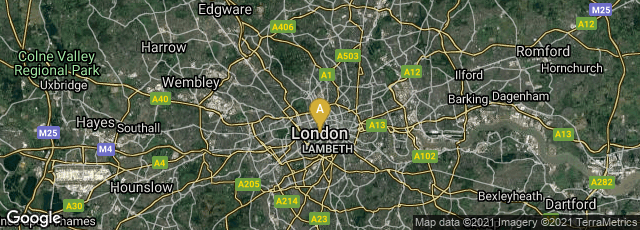

A: London, England, United Kingdom
In June 2013 American antiquarian bookseller Donald "Rusty" Mott reminded our ABAA chatline that in 1945 the imaginative English antiquarian bookseller Percy H. Muir in his book, Book-Collecting as a Hobby, in a Series of Letters to Everyman (1945) predicted, in a somewhat dystopian fashion, the eventual development of an alternative to the printed codex. From the online version of Muir's book made available by Hathitrust.org, I quote the relevant passage on pp. 172-173:
"I have tried to show you that the first fifty years of printing established all the essentials of the craft, that the ensuing three hundred years or so were spent in perfecting and developing the potentialities of the invention, and that the last hundred years or so have revolutionized it out of all knowledge. Probably little remains to be done to the book as we know it beyond the perfection of detail. . . .
"Is there any future beyond that? Will the reading matter of the future resemble our printed books as little as they resemble the clay tablets of the Assyrians? Probably, and if so, it will be along the lines of greater portability and cheapness. These two things have dominated the evolution of books since the beginning, and it would be idle to suggest that the limits of that evolution have been reached.
"The flood of inventiveness that is already flowing will not leave books as they are. I will venture few predictions except to suggest that in the future books will remain largely visual. There is, in my opinion, no general future for the talking book. It may be, of course, that a new kind of conditioned reflex will arise as a result of broadcasting. More and more people seem to find a radio background essential to their daily lives. In many households the radio is switched on all day. People tend increasingly to overhear rather than to listen to radio programs. The housewife welcomes music while she works, and may equally welcome the reading aloud of a novel while she knits or sews—with headphones, we may hope. It may be, therefore, that a cheap method of supplying talking books with a circulating library as the obvious method of distributing the records will find a larger audience than I anticipate.
"But such a method would obviously supplement rather than supplant the printed book. It is much more likely that some development of photography will supplant typography in the production of at any rate some kinds of books. An extension of the use of microfilm with a simple miniature form of illumination, coupled with a magnifier and perhaps a 'proto-book' on to the blank pages of which the miniature slides would be projected may be already on the way.
"On the brink of such horrors I take my leave of you, dear Everyman, to plunge nostalgically into the pleasant waters of the past."